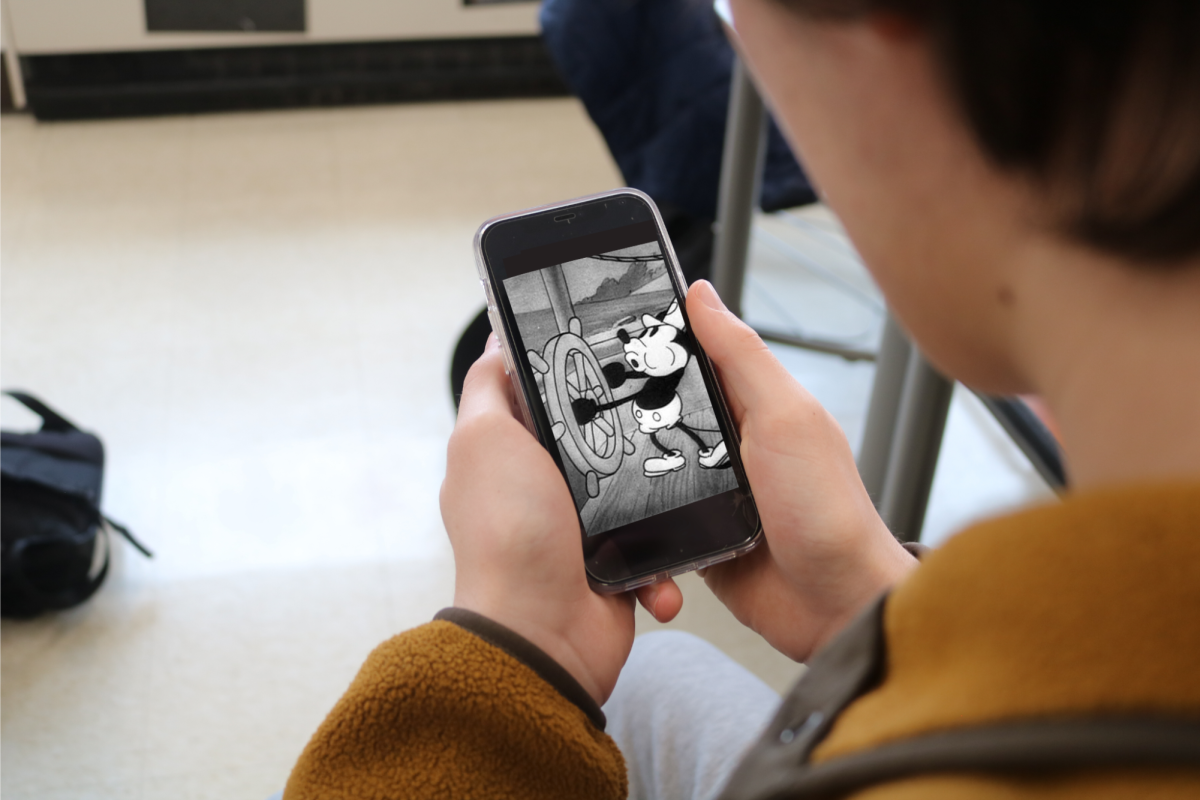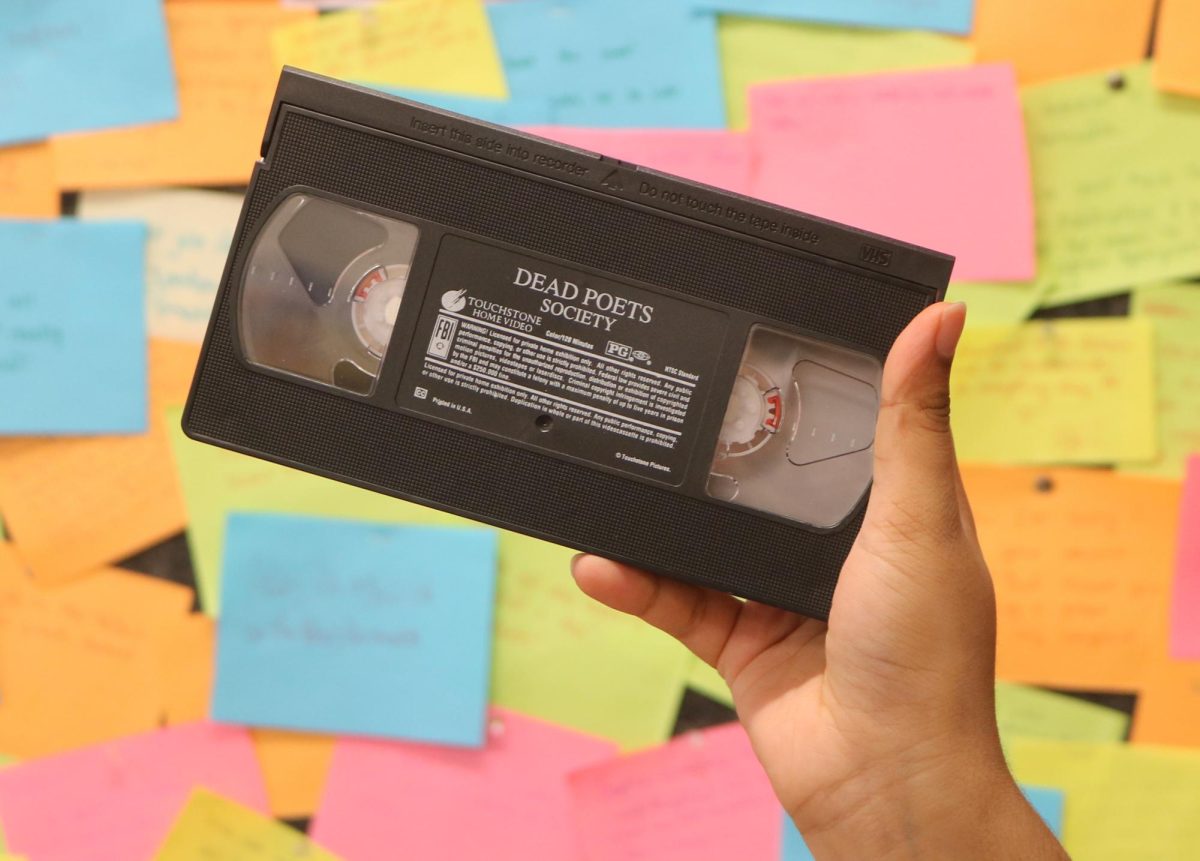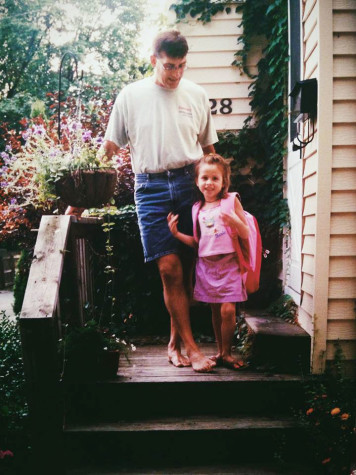
Danielle and her father at a young age.
While watching TV after a long day at school, some of us may have seen a familiar face in a trailer for an upcoming television show on ABC Family called “Becoming Us.” Confusion and curiosity ensue, and by the time you get to school the next day, everyone’s talking about Danielle Molnar, a senior at LHS, and her transgender father, Sally, in a TV show.
“Becoming Us” is a docu-series airing on ABC Family this summer. Ben Lehwald, an Evanston Township High School senior who also has a transgender father, Carly, stars with Danielle and Sally on the show. The show is focused on the families’ relationship and captures what it’s really like having a transgender parent.
Molnar described being transgender as “the off side of gender dysphoria,” a condition formerly known as gender identity disorder, “which is not identifying as the [sex] you were originally born with, and people get that confused. Transgender is not just about wearing makeup or dressing as the gender you identify as; it’s actually mentally being that gender.”
As simple as it sounds, there is one question that many cisgender people, individuals who identify as the gender they were given, ask transgender people: “What do I call you?”
In Sweden, they’ve acclimated a gender-neutral pronoun, “hen,” into their dictionary. He, “han” in Swedish, and she, “hon,” were the previous pronouns, but they added “hen” for practical reasons in society. By having gender-neutral pronouns, it broadens the idea of gender and makes people more open to the idea of transgender people in general. The U.S. still hasn’t developed anything like that.
Molnar said her dad is called Sally or Sallydan, and uses the feminine pronoun “she.” Molnar confessed that she still struggles with the pronouns, however, she believes that, “if you do have a friend or someone in your life who is transgender, you should try to use the pronoun that they identify with because if you’re using their previous pronouns, it’s almost insulting to them.”
Molnar said that during her childhood, her father was manly. “You would’ve guessed that my dad has always been very different, but growing up, my dad was a very average dad. We played sports, we did all that stuff together,” she explained.
Slowly, Molnar started noticing little changes with her dad, like when he began growing his hair out, and when she got older, she saw that he was wearing makeup. Molnar said he opened up to her when she was 10 years old. “When my parents got divorced, he said he was gay and he went from being gay to being like, ‘you know, I’m not just gay I’m transgender.’” In an interview with the Chicago Tribune, Molnar said while attending Highland Middle School, she would get made fun of after people found out her dad was transgender.
Although the taunting ceased in high school, Molnar is skeptical about its “open-armed” environment. “…High school in general isn’t accepting. Even [towards] gay and lesbian people; they’re still not accepting of that either… it’s almost a taboo thing in schools that when there is a person who’s dealing with identity disorder, they’re often ridiculed, made fun of or anything like that because it’s a hard thing for people to accept.”
Stigmas and discrimination are still present in many places, and for LGBT rights in general, there still is a long way to go. In regards to the very controversial issue of transgenders and bathrooms, Molnar said, “I think that if I were to be transgender that would be incredibly hard to do, getting made fun of for using a bathroom that you think you should be using.”
The Williams Institute at the UCLA School of Law claims that in 2011, 0.3 percent of the adult population identified as transgender; that’s around 700,000 people in the United States. According to Laci Green, the MTV host for the popular web show “Braless,” 70 percent of transgender people today have issues with going to the bathroom because of mocking, blocking off entrances or stalls, questioning, and even assault, which happens to 9 percent of transgender people in bathrooms. The Transgender Law and Policy Institute says there are more than 150 college campuses in the nation that have separate, gender-neutral bathrooms; however, Green views that as “separate but equal.”
In this decade, more and more television shows have been providing LGBT themes. Television shows like “Modern Family,” “Glee,” “True Blood,” “Mad Men,” “Orange is the New Black,” and “The Fosters” have surely been supporters of the gay community, but when the comedy-drama Amazon series, called “Transparent,” won both a Golden Globe in 2015 and high praise from critics, a landmark for the transgender community was made. The show revolves around an L.A. family that finds out their father, Mort, is transgender.
Molnar was not contractually allowed to discuss her show’s airing date, how many episodes there were, or how ABC Family contacted them initially, but she was allowed to say that filming for “Becoming Us” started in the beginning of the school year and has since ended. Molnar said that although it didn’t disrupt her life severely, she explained that “there were some nights that [we] filmed really late, it was really hard to get [her] homework done but that was about it.”
Many wonder how they could live with a camera in their face, and Molnar described it as a weird experience. Reflecting back on the filming process, Molnar said, “I always think back and I always have to like rethink everything that I say because I don’t wanna like say something that’s gonna offend somebody or bring up media distress.”
The transgender community is growing day by day because of the increasing support that is shown toward family members and friends. One piece of advice Molnar said to the people who are transitioning, based on her dad’s experiences, was to not “take what other people say too seriously. You have to have thick skin because there’s always gonna be somebody out there that’s not going to agree with what you’re doing.”



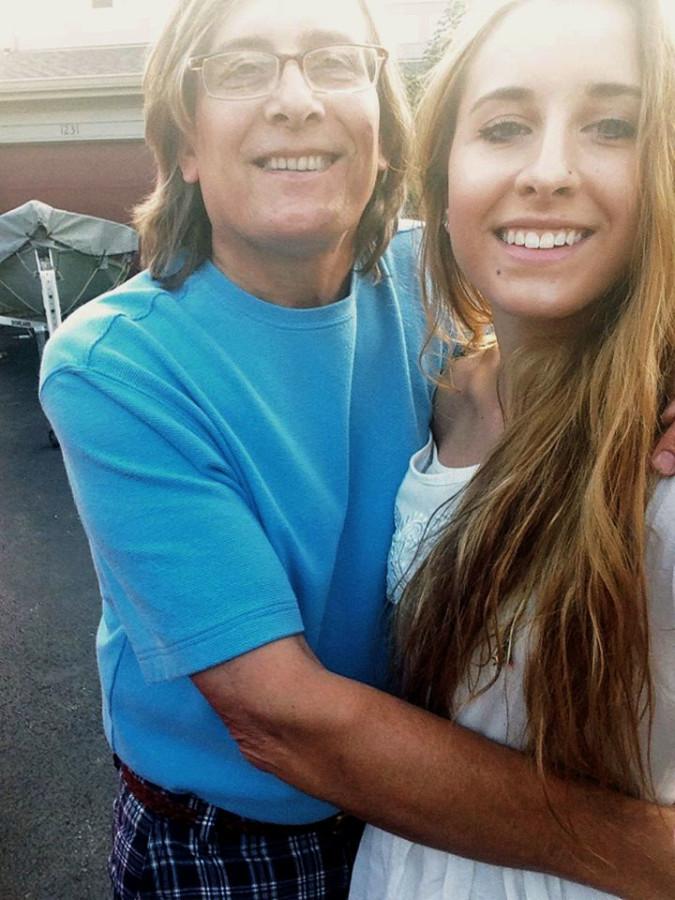
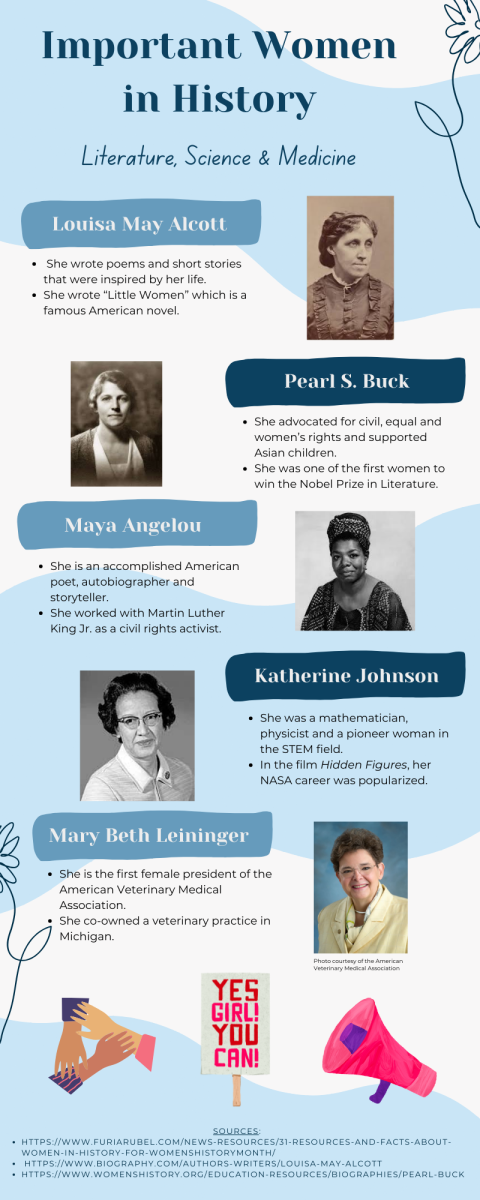
![Mr. Scott Brzezinski poses for a photo while working at ShurWay Moving in Libertyville where his cousin Mr. Eric Brzezinski also works. He appreciates that LHS prepares students for their future by providing a variety of opportunities. “[There are] a lot of different resources that LHS has between colleges and counselors,” he said. (Photo courtesy of Mr. Scott Brzezinski)](https://www.lhsdoi.com/wp-content/uploads/2025/02/Mr.-Scott-Brzezinski-Photo-2-1200x1200.jpg)
